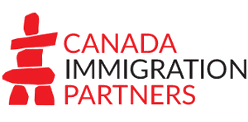You may have come across the letter ‘PNP‘ while researching immigration to Canada. It’s an initialization worth knowing because it’s a system that can boost your chances at success when applying for permanent residency.
Here’s what it stands for, and what it could mean for your immigration journey into Canada.
What does PNP mean?
PNP stands for ‘Provincial Nomination Program’. Immigration is managed by both Provincial and territorial governments and the federal government in Canada – PNP is the channel through which provinces and territories take part.
Put simply, it’s a system that allows each province or territory to – you guessed it – nominate potential permanent residents for consideration by the federal government. Except for Quebec, of course – they’ve got a slightly different process.
There are now over 80 individual PNP streams, tailored to specific industries or regional requirements. Some are aligned with Express Entry, which brings us to:
The benefits of PNP
If you’re lucky enough to get a provincial nomination from the region of your choice, it can have a major positive impact on your chances of success.
That’s especially true if you’re applying through a PNP stream aligned with the federal government’s Express Entry system. If you’ve read our detailed guide to Express Entry, you’ll know how important the CRS score is for securing an invitation to apply.
Here’s where the PNP comes in. A provincial nomination is worth 600 extra points on your CRS score. As long as you meet the requirements for Express Entry, that boost effectively guarantees that you’ll receive an invitation to apply through the federal government, which will allow you to apply for permanent residency.
In a competitive immigration landscape, that’s pretty enticing. So – are you eligible? Learn more about our Canada Express Entry Consultant services today!
What are the requirements to apply to a PNP?
Each province has its own specific criteria and processes based on the labor shortages they’re facing, the industries it is trying to encourage, or the regions it is trying to serve. We’ll get into the specifics about British Columbia (our area of expertise) later in this article, but let’s start by looking at the requirements that are common to all programs.
All PNP programs tend to ask for a few basic things from their applicants:
- Full-time, permanent job offers. There are a couple of exceptions to this rule (BC’s Tech stream only requires that your offer be for a year, for example, and some post-graduate streams are exempt from this), but on the whole, you’ll need a full-time job offer from an employer in the province or territory of your choice.
- A salary in line with the rates of the province. Like the LMIA, your employer will need to be offering you a salary or wage that is equal to or above the standard for the province. For more information check out our LMIA Application.
- Language skills. Again, this doesn’t apply to every category – but it does apply to most. You’ll need to prove that you’re proficient in one of the official languages of Canada.
- An Express Entry profile. If you’re applying through a PNP stream that is aligned with the federal government’s Express Entry system, you’ll need to have created a profile before applying for one of the PNPs.
- Legal immigration status. If you’re already in the country, you’ve got to be here and working on legal terms.
- Expression of Interest. Some streams will require that you fill out an ‘Expression of Interest’ form – here’s an example explanation from Ontario’s government website.
- Application fees. These vary across streams and regions, but there will almost always be a fee associated with applying for a PNP. The cost of applying for many of BC’s streams sits at around $1,150, with appeals and reviews costing $500.
- Patience. Provinces and territories tend to work a lot quicker than their federal counterpart, and again – it varies depending on where you’re applying. Expect to wait at least a couple of months to receive a nomination, though.
Each province will have its own streams that have different requirements and application processes. But we’ll take British Columbia as an example since it’s the region we help applicants with most often.
For a full list of each province and territory’s streams and entry requirements, check out the government’s page on provincial nomination programs.

The British Columbia PNP
British Columbia offers a good example of the variance in PNPs across the country. Because it’s one of the largest and has a few unique streams.
Applying to a BC PNP
If you’re a skilled worker planning to emigrate to British Columbia. You’ll need to apply through the Skills Immigration Registration System, also known as SIRS. It’s a system not unlike Express Entry’s CRS. Which gives you a score so the BC government can decide who they’d like to prioritize.
They’ll assess your skills, education, language abilities, job offer, and more. If you’re successful, you’ll receive an invitation to apply through BCPNP Online. It’s important to be ready for this – once you’re invited. You’ve got just thirty days to finish and submit your application.
What are the BC PNP streams?
You’ve got a few options as a skilled worker in BC, depending on the industry you’re working in. Like every province, they prioritize the sectors they’d like to grow. Your chances of success are better if you have technical skills or work in healthcare, childcare, or animal care.
The broad categories are as follows:
- Skilled Workers: This is perhaps the broadest stream on offer, and is for anyone from managers to those in a “technical, trade or other skilled occupation”. Aside from all the requirements above, you must have two years of experience in your field.
- Health Authority: If you work for a recognized healthcare provider in BC or are a physician, nurse or midwife with a full-time job offer, this stream’s for you. You’ll find more details on the page we’ve linked to.
- Entry-Level and Semi-Skilled: This stream can get specific, but it’s for those with specially-determined positions in tourism, hospitality, food processing, long-haul trucking, and some healthcare roles, too. You’ll need to have been working for your employer for nine months. The full list of positions and requirements is in the link.
- International Graduate: If you recently graduated from a Canadian university, this could be the stream for you. It’ll have to be a recognized institution within the last three years, though.
- International Post-Graduate: This one’s a little more specific. You must have a BC-issued degree in one of several fields, primarily scientific or engineering. However, International Post-Graduates do not need a full-time job offer or other requirements.
- BC PNP Tech: We mentioned this one a little earlier, but if you’re in tech, you could also be in luck. You’ll need to look through the in-demand occupations to see if yours is on there, but if it is you might have an improved chance at success.
- Entrepreneur: This one’s designed for those with a background in entrepreneurial success – the hope is that these figures will come and promote innovation in BC by establishing businesses there. The requirements are strict, so look at the BC government page to learn more.
That’s a lot to take in, but hopefully, you’ll have a better idea of the options available to you. BC isn’t necessarily representative of every province’s PNP streams, but it does offer a basic idea of the kinds of categories you’ll encounter.
With any luck, you’ll have been able to roughly identify yourself with one of those categories. Knowing if you’re eligible greatly increases your chances of success.
It can be a little complex to identify the best stream for you amongst the over 80 now available. Let Matthew or Miho help determine whether BC PNP is right for you. It may not be – but it’s far from the only way into Canada.





